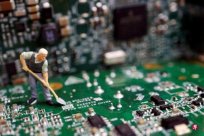A survey by Reuters shows that most Japanese companies believe that the Japanese government does not need to follow the United States to raise tariffs on imported products in China, and says that overcapacity in China will not affect them.
The US President Bai Deng announced last month that it has greatly improved a series of tariffs on Chinese goods including electric vehicles, batteries and semiconductors. At the same time, it has criticized Beijing's large number of subsidies and policies that have led cheap commodities to the global market.
The European Commission notified car manufacturers last week that from July 4th, a temporary counter -subsidy tax of 38.1%of electric vehicles imported from China will be levied from China;In the joint statement issued last week, "expressed concerns about China's continuous industrial goals and comprehensive non -market policies."
But in a survey conducted from June 5th to 14th, 61%of the respondents said that Japan did not need to take similar measures.The rest of the interviewees believed that Japan should do this.About 53%of respondents said that excess capacity of China has little effect on their business.
The manager of a chemical company wrote in the review part of the investigation: "This may lead to upgrading of measures and countermeasures for each other, and the economic situation will become worse."
As a response to tariffs, China has accused the United States of evacuating its free trade principles, and stated that the Statement of the Seventh Kingdoms lacks a factual basis.
Nikkei Research Company surveyed 492 Japanese companies, of which about 230 companies responded.



